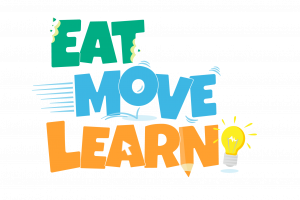Everybody – children and adults – needs to eat a variety of food to stay healthy.
 Hi there, I’m Searcher!
Hi there, I’m Searcher!
On this page you’ll find lots of information about the different food groups that make up the Eatwell Guide. The types of food in the Eatwell Guide can be adapted to show what different communities like to eat. This means it can include foods from different cultures, such as South Asian and African and Caribbean foods.
Take your time to read each section and try our cool quiz at the end.
The 5 food groups that make up the Eatwell Guide are:
There’s also guidance on drinks, and foods to eat less often.
The Eatwell Guide helps us understand how to eat a healthy and balanced diet. It has 5 food groups and shows how much of each group we should eat compared with others. It helps us to eat a variety of different food and nutrients every day.

Carbohydrates give you energy for your day, such as for walking to school, playing with your friends and concentrating in lessons. Isn’t that awesome?
Carbohydrates include starchy food such as:
It’s a good idea to have starchy carbohydrates at every meal.
Carbohydrates also contain fibre, which is good for your tummy and digestion. To make sure carbohydrates are full of fibre, look for those that are brown in colour. We call these “wholegrain” types. They include brown rice, wholewheat pasta and wholemeal bread.
Fruit and vegetables are the superstars for health! They are packed with nutrients like fibre, vitamins and minerals that our bodies need to be healthy. You should eat at least 5 A DAY – this means having at a least 5 portions of different fruit and vegetables every day. Count how many you can eat each day!
> What counts as one of your 5 A DAY?
Imagine proteins as tiny building blocks for your body because they help it grow and repair itself. Plus, protein helps to keep your muscles and bones strong.
You can get protein from:
But guess what? Plants have protein too! You can get plant protein from:
It’s a good idea to eat protein from plants because they have lots of other good nutrients, like fibre.
Dairy is found in milk, cheese and yoghurt. It is filled with protein, vitamins and minerals which help you grow and stay healthy. One special mineral in dairy is calcium, which keeps your bones strong and is important when you’re growing.
Some people don’t want to eat dairy from animals and instead they choose alternatives made from plants such as soya, oats or almonds. If you like dairy alternatives, check the label if it has calcium.
Oils and spreads have fats in them. Some fats, like the ones in oils and spreads made from sunflower seeds, rapeseeds or olives, are good for your heart. These are called unsaturated fats. But it’s best to eat only a little bit every day.
Cakes, crisps, chocolate and fried food like chips have a lot of saturated fat (a type of fat we should eat less of), salt and sugar. While these taste nice, it’s best to only eat them sometimes rather than everyday, as they don’t give your body many nutrients.
Did you know that that you can’t go more than 3 DAYS without having any water?! We need to drink water to stay alive!
Water can be found in the food we eat, like in fruit and vegetables. But as well as the water in our food, we should have at least 6–8 drinks every day, and even more when we exercise or when it’s hot outside.
Water and lower-fat milk are healthy drink choices. If you drink fruit juice or smoothies, it’s better to only have a small glass a day as they can have lots of sugar. What about sports drinks and fizzy drinks like cola? They have a lot of sugar, so it’s better to not to drink them too much.
Great job – you’re becoming a pro at knowing what makes up a healthy and balanced diet! To test what you’ve learnt, try our cool quiz:
